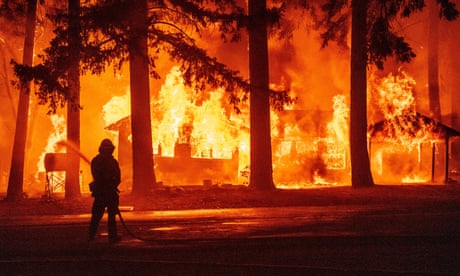Home » Posts tagged 'climate change' (Page 15)
Tag Archives: climate change
Reply to Diesendorf, M. Comment on “Seibert, M.K.; Rees, W.E. Through the Eye of a Needle: An Eco-Heterodox Perspective on the Renewable Energy Transition. Energies 2021, 14, 4508”
…click on the above link to read the rest of the article…
Today’s Contemplation: Collapse Cometh XXXIX

Another contemplation prompted by an email my mum sent me. This is a lengthier article than usual (and intended) since I added further points each time I proofread it…
“This was sent to us from a college friend of XXX’s but I think he has a valid point!
___
I’ve always doubted mankind’s impact on the issue of climate change. After all, earth has had two ice ages that were followed by two warming cycles, all before humans left their caves. So, to me, the debate is whether there is a new natural, million year warming or cooling trend. If there is, there is nothing we can do about it. The following is a mixture of pictures and political comment on the matter [not included]. I am disappointed no one has followed the money and identified all those who gained notoriety, wealth, and power over the past 20 years of fear mongering.
I will begin by stating there are a growing number of people who have (and for some time) been following the ‘money’ and have uncovered growing manipulation by the ‘elite’ in a variety of areas and ways (it goes far beyond global warming/climate change). G. Edward Griffin, for example, talks about this entire situation of environmental concerns being leveraged by the ‘ruling class’ to profit from in some detail at the end of his in-depth and biting critique of the U.S.’s central banking system, the Federal Reserve, in The Creature From Jekyll Island (1994) — given the world reserve currency status of the U.S. dollar, the Fed is perhaps the most pernicious institution currently on our planet, for it those who control the creation and distribution of ‘money’ that are amongst the most powerful on the planet.
Most of those who have done this type of research, however, do not have the platform or finances for disseminating their ideas in the way that the mainstream media and/or politicians do, and for the most part their concerns have been overwhelmed by the constant propaganda of the ruling class and suppressed (and increasingly so given the expanding calls for censorship amid accusations of ‘fake news/misinformation’ by ‘the-powers-that-be’). I believe that’s changing but the impediments to revealing those manipulating the dials behind the curtain are huge; and when one does throw light upon the dark corners of our elite, more often than not if the challengers of mainstream narratives cannot be ostracised or marginalised, they are increasingly ending up like Edward Snowden or Julian Assange.
Regardless, here’s my spin on things ‘environmental’ and the connection with those who would use them for profit.
…click on the above link to read the rest of the article…
Have tipping points already been passed for critical climate systems? (5) Coral Reefs: A death spiral
Have tipping points already been passed for critical climate systems? (5) Coral Reefs: A death spiral
 |
| Great Barrier Reef bleaching 2016 |
Ecosystems, including coral reefs, mangroves and kelp forests in Australia, are degrading fast as the world’s sixth mass extinction gathers pace.Coral polyps are invertebrates similar to minute jellyfish, which build limestone structures, and live in a symbiotic relationship with algae-like unicellular zooxanthellae that reside within the coral structure, and give it colour. The coral provides the algae with a protected environment and compounds they need for photosynthesis. In return, zooxanthellae supply the coral with oxygen, glucose, glycerol, and amino acids, which are the products of photosynthesis.
Corals survive within a narrow water temperature band, and suffer heat stress and expel zooxanthellae if the ocean temperature gets too high. Bleaching events vary in intensity; in the extreme case, all zooxanthellae are expelled and the living colony will appear totally white (hence “bleaching”). As elevated sea temperatures persist, coral mortality rates increase: corals may recover, if there are any zooxanthellae left in their tissues, but if not death appears to be inevitable.
The bottom line: If severe bleaching events occur regularly at shorter than 10–15 year intervals, then reefs face a death spiral of coral mortality followed by inadequate recovery periods. And that is what is happening now. Along Australia’s Great Barrier Reef, the frequency of mass bleaching is increasing, with events occurring in 1998, 2002, 2016, 2017 and 2020. The 2016-17 events severely bleached half the reef, whose extent has been reduced by three-quarters over the last 40 years. Coral reproduction on the Great Barrier Reef has fallen 89% after repeated recent bleachings.
…click on the above link to read the rest of the article…
Experts Say Nuclear Energy as Climate Solution Is Total ‘Fiction’

A protestor gestures during an anti-nuclear demonstration on October 1, 2016 in Siouville-Hague, northwestern France. (Photo: Charly Triballeau/AFP via Getty Images)
Experts Say Nuclear Energy as Climate Solution Is Total ‘Fiction’
As global scientists continue to warn of the urgent need to keep fossil fuels in the ground, a quartet of European and U.S. experts on Tuesday made a comprehensive case for why nuclear power should be not be considered a solution to the climate crisis.
“The central message, repeated again and again, that a new generation of nuclear will be clean, safe, smart and cheap, is fiction.”
While the experts recognize in their joint statement that “the climate is running hot,” they push back forcefully against those who argue nuclear could be a “partial response to the threat of global heating.”
With four signatories—Paul Dorfman, former secretary of the U.K. government’s Committee Examining Radiation Risks of Internal Emitters; Greg Jaczko, former chairman of the U.S. Nuclear Regulatory Commission; Bernard Laponche, former director general of France’s energy management agency; and Wolfgang Renneberg, former head of the reactor safety, radiation protection, and nuclear waste at Germany’s environmental ministry—the statement comes as a direct challenge to a nuclear industry trying to bill itself as a reliable part of the world’s transition to a more sustainable energy system.
“As key experts who have worked on the frontline of the nuclear issue,” their statement explains, “we consider it our collective responsibility to comment on the main issue: Whether nuclear could play a significant role as a strategy against climate change.”
…click on the above link to read the rest of the article…
Don’t Make Me Watch
The new climate film celebrates malpractice martyrdom, and enviros of all stripes are cheering it on

I had to force myself to watch Don’t Look Up. It was painful. Just as painful as it’s been to watch the litany of reviews extolling its virtues, with one righteous climate scientist and environmentalist after another claiming to identify with the valiant yet unsuccessful fights put forth by the film’s heroic characters.
Of course, this was all predictable. Which is why I tried to avoid watching the movie and remain in a bubble of detached bliss, protected from the nonsense I suspected would ensue. But still — surely, I thought, more people than just me and a few comrade-in-arms would see through the misplaced self-indulgence. Mainstream enviros would have their congratulatory field day, yes, but surely there’s a strong contingent on the fringe who saw what was plainly obvious to me and my small posse? Perhaps this is a cathartic clarion call to that silent contingent.
As heroic as climate scientists and climate activists are often made out to be, the trouble is that most of them are barking up the wrong tree. They’ve made the wrong diagnosis and are offering up a snake oil cure — a cure that’s not only totally detached from biophysical reality, but that would actually make the real problem worse. Even the few who grasp what that real problem is still mostly don’t understand its full implications and are offering up incomplete or altogether off-the-mark solutions.
So, let’s start with the diagnosis. We have no hope of fixing a problem or curing a disease if we don’t fully, accurately understand it. The diagnosis sold to the public by mainstream enviros (this includes climate scientists, climate activists, and the environmental community at large) is climate change…
…click on the above link to read the rest of the article…
Spot The Illusions We Tell Ourselves
Spot The Illusions We Tell Ourselves
Whitewater Falls, North Carolina
Recently there have been a rather large number of occurrences which shine a light on some positive progress being made on ecological overshoot. Unfortunately, many outlets and even scientists have made claims about so-called “solutions” which are anything but, and generally they’re simply not true.
One of the loudest occurrences has been the release of Don’t Look Up on Netflix, which has elicited lots of reviews and is reverberating far and wide within the climate change community. I say “climate change” community because even many longtime climate followers are still in the dark about ecological overshoot, the predicament CAUSING climate change. One review in particular is extremely accurate, this one from Tom Murphy. On most articles, I usually try to avoid reading the comments following said articles. However, Tom’s site generally has comments which actually elevate each article because they are often thoughtful rather than the depressing comments after most “regular” articles. This particular snippet of one caught my eye because of the relevance it has with so many comments I see routinely, quote:
“When will “we” unite to solve “our” global problems? As much as each of us may wish otherwise, humanity is not a giant family. It is a large mass of clever primates who have evolved to cope with temporary resource surpluses followed inevitably by scarcity. After the feast always comes the killing famine, and we are built to compete in just such a world.
This does not foreclose united action against common threats, but when the chips are down and *somebody* must have less of a limiting resource, we will do everything in our earthly power to ensure that it’s not us.
…click on the above link to read the rest of the article…
Beavers offer lessons about managing water in a changing climate, whether the challenge is drought or floods
Beavers offer lessons about managing water in a changing climate, whether the challenge is drought or floods
It’s no accident that both the Massachusetts Institute of Technology and the California Institute of Technology claim the beaver (Castor canadensis) as their mascots. Renowned engineers, beavers seem able to dam any stream, building structures with logs and mud that can flood large areas.
As climate change causes extreme storms in some areas and intense drought in others, scientists are finding that beavers’ small-scale natural interventions are valuable. In dry areas, beaver ponds restore moisture to the soil; in wet zones, their dams and ponds can help to slow floodwaters. These ecological services are so useful that land managers are translocating beavers in the U.S. and the United Kingdom to help restore ecosystems and make them more resilient to climate change.
Scientists estimate that hundreds of millions of beavers once dammed waterways across the Northern Hemisphere. They were hunted nearly to extinction for their fur in the 18th and 19th centuries in Europe and North America but are making comebacks today in many areas. As a geoscientist specializing in water resources, I think it’s important to understand how helpful beavers can be in the right places and to find ways for humans to coexist with them in developed areas.
How beavers alter landscapes
Beavers dam streams to create ponds, where they can construct their dome-shaped lodges in the water, keeping predators at a distance. When they create a pond, many other effects follow.
Newly flooded trees die but remain standing as bare “snags” where birds nest. The diverted streams create complicated interwoven channels of slow-moving water, tangled with logs and plants that provide hiding places for fish. The messy complexity behind a beaver dam creates many different kinds of habitats for creatures such as fish, birds, frogs and insects.
…click on the above link to read the rest of the article…
Climate scientists: Ban solar geoengineering
Climate scientists: Ban solar geoengineering
‘The risks are poorly understood and can never be fully known’

The following open letter was issued by an international coalition of prominent scientists and governance scholars on January 17, 2022. It calls for an international treaty to outlaw attempts to reduce global heating by blocking sunlight from reaching earth.
Sixteen of the signatories are co-authors of Solar geoengineering: The case for an international non-use agreement, published simultaneously in the journal WIREs Climate Change. That paper concludes:
“Solar geoengineering is not necessary. Neither is it desirable, ethical, or politically governable in the current context. With the normalization of solar geoengineering research moving on with rapid speed, a strong political message to block these technologies is needed. And this message must come soon.”
OPEN LETTER
Solar geoengineering – a set of hypothetical technologies to reduce incoming sunlight on Earth – is gaining prominence in debates on climate policy. Several scientists have launched research projects on solar geoengineering, and some see it as a potential future policy option.
To us, these proliferating calls for solar geoengineering research and development are cause for alarm. We share three fundamental concerns:
First, the risks of solar geoengineering are poorly understood and can never be fully known. Impacts will vary across regions, and there are uncertainties about the effects on weather patterns, agriculture, and the provision of basic needs of food and water.
Second, speculative hopes about the future availability of solar geoengineering technologies threaten commitments to mitigation and can disincentives governments, businesses, and societies to do their utmost to achieve decarbonization or carbon neutrality as soon as possible. The speculative possibility of future solar geoengineering risks becoming a powerful argument for industry lobbyists, climate denialists, and some governments to delay decarbonization policies.
…click on the above link to read the rest of the article…
Hottest ocean temperatures in history recorded last year
Ocean heating driven by human-caused climate crisis, scientists say, in sixth consecutive year record has been broken

The world’s oceans have been set to simmer, and the heat is being cranked up. Last year saw the hottest ocean temperatures in recorded history, the sixth consecutive year that this record has been broken, according to new research.
The heating up of our oceans is being primarily driven by the human-caused climate crisis, scientists say, and represents a starkly simple indicator of global heating. While the atmosphere’s temperature is also trending sharply upwards, individual years are less likely to be record-breakers compared with the warming of the oceans.

Last year saw a heat record for the top 2,000 meters of all oceans around the world, despite an ongoing La Niña event, a periodic climatic feature that cools waters in the Pacific. The 2021 record tops a stretch of modern record-keeping that goes back to 1955. The second hottest year for oceans was 2020, while the third hottest was 2019.
“The ocean heat content is relentlessly increasing, globally, and this is a primary indicator of human-induced climate change,” said Kevin Trenberth, a climate scientist at the National Center for Atmospheric Research in Colorado and co-author of the research, published in Advances in Atmospheric Sciences.
Warmer ocean waters are helping supercharge storms, hurricanes and extreme rainfall, the paper states, which is escalating the risks of severe flooding. Heated ocean water expands and eats away at the vast Greenland and Antarctic ice sheets, which are collectively shedding around 1tn tons of ice a year, with both of these processes fueling sea level rise.
…click on the above link to read the rest of the article…
Life After Fossil Fuels | Alice Friedemann
Life After Fossil Fuels | Alice Friedemann
And why the climate change conversation isn’t helping
A post-carbon world could be our opportunity to so better—and make the difficult transition much harder to swallow.
That’s the message of Alice Friedemann on this week’s episode, author of When Trucks Stop Running: Energy and the Future of Transportation. The transition is coming, perhaps collapse is coming, and if the world as we know it is going to change we might as well make the most of it. She worries we won’t be given the opportunity due to all the misinformation flying around, and gives a cutting analysis of how the climate change conversation is distracting from many other dangerous, concurrent such as biodiversity loss and water scarcity.
This is a phenomenally interesting interview, which also manages to be a lot of fun, despite the topics! Listen here on catch it on on Apple or Spotify.
Visit Alice’s website Energy Skeptic and get your hands on a copy of When Trucks Stop Running: Energy and the Future of Transportation.
Losing It
Losing It
Faced with the gathering collapse of the biosphere, and governments’ refusal to take the necessary action, how do we stop ourselves from falling apart?
No wonder journalists have slated it. They’ve produced a hundred excuses not to watch the climate breakdown satire Don’t Look Up: it’s “blunt”, it’s “shrill”, it’s “smug”. But they will not name the real problem: it’s about them. The movie is, in my view, a powerful demolition of the grotesque failures of public life. And the sector whose failures are most brutally exposed is the media.
While the film is fast and funny, for me, as for many environmental activists and climate scientists, it seemed all too real. I felt as if I were watching my adult life flash past me. As the scientists in the film, trying to draw attention to the approach of a planet-killing comet, bashed their heads against the Great Wall of Denial erected by the media and sought to reach politicians with 10-second attention spans, all the anger and frustration and desperation I’ve felt over the years boiled over.
Above all, when the scientist who had discovered the comet was pushed to the bottom of the schedule by fatuous celebrity gossip on a morning TV show and erupted in fury, I was reminded of my own mortifying loss of control on Good Morning Britain in November. It was soon after the Cop26 climate conference in Glasgow, where we had seen the least serious of all governments (the UK was hosting the talks) failing to rise to the most serious of all issues. I tried, for the thousandth time, to explain what we are facing, and suddenly couldn’t hold it in any longer. I burst into tears on live TV.
…click on the above link to read the rest of the article…
Oceans Break Heat Record for Third Year in a Row
Oceans Break Heat Record for Third Year in a Row
2021 broke the record from 2020 by about 14 zettajoules, or 20 times the world’s annual energy consumption

The world’s oceans reached their hottest levels on record in 2021. It’s the third year in a row it’s happened, and it’s driven almost entirely by human-caused climate change, scientists announced yesterday.
The findings are presented in a paper published in the journal Advances in Atmospheric Sciences. As excess heat accumulates in the atmosphere, caused by continued greenhouse gas emissions, the oceans soak some of it in.
The study analyzes data from scientific sensors attached to floats scattered throughout the oceans, from the balmy Mediterranean to the icy waters surrounding Antarctica. It relies primarily on two international datasets—one maintained by the Chinese Academy of Sciences and the other operated by NOAA.
The study finds that the amount of heat in the oceans last year broke the previous 2020 record by around 14 zettajoules. That’s equivalent to at least 20 times the entire world’s annual energy consumption.
It’s an ongoing pattern. All five of the world’s hottest ocean levels have occurred in the last five years. The record-breaker in 2017 is still a bit higher than 2018. But each of the last three years, from 2019 to 2021, have all broken the previous record.
That’s on top of a decades-long pattern of warming. Every decade since 1958 has been warmer than the previous decade. And the rate of warming has sped up significantly since the 1980s.
…click on the above link to read the rest of the article…
Social Cohesion Is Vital, and We’re Losing It

An American flag in front of a damaged school area in Dayton, Ohio on May 28, 2019. (Photo: Seth Herald/AFP via Getty Images)
Social Cohesion Is Vital, and We’re Losing It
The United States is tumbling toward socio-political crisis. Here are just a few of the distress signals recently visible:
- The insurrection at the US Capitol building (January 6, 2021).
- Rapidly increasing numbers of death threats against politicians—including threats from fellow politicians.
- A majority of followers of one of the two main political parties telling pollsters that they would approve of violence as a means to political power (for the population as a whole, one in three now say that political violence can be justified, up from one in six in 2010).
- A state governor planning to set up a militia, answerable only to himself.
- Continual demonization by members of both major political parties of their opponents as “unamerican.”
- US generals warning that disaffected military personnel may lead another insurrection in 2024.
- Threats to “primary” elected leaders (i.e., to challenge them in primary elections with candidates more extreme and doctrinaire), leading to ever-further radicalization and polarization of the political positions of policy makers.
- The proliferation of weapons (there are now 120.5 guns in the US for every 100 people).
We’ve all seen this basic movie plot before—in “failed states” in the modern world, and in declining civilizations throughout history—and it seldom ends well.
For a society to succeed, people must cooperate. They must trust government leaders, who in turn must work together, at least partly for the benefit of the society as a whole…
…click on the above link to read the rest of the article…
Why Pundits ‘Don’t Look Up’ from Progress

Why Pundits ‘Don’t Look Up’ from Progress
The new film about a total apocalypse of the human race is being slammed by many film reviewers. But when I chat to people who have seen it they think it brilliant. And my Facebook wall is full of friends writing versions of OMG what a film! So what might these extremely different reactions tell us?
When I read the reviews of ‘Don’t Look Up’ they seem to misunderstand the film. Even the reviews from environmentalists who slag off the other reviews miss what is seen as important about the film by me and people who are alive to the very latest climate trends.. So here are my two cents on the film and – like all important art – the lessons from the reactions it has generated.
Judging by its output since WWII, the role of Hollywood has been to produce stories that celebrate human power (mostly male), including conquest, progress, success and heroic individualism. The stereotypical ‘Hollywood Ending’ is not only good but is thanks to one special person. Even tragedies and horror films would typically include some of those themes. Compare American output to French films and those aspects of Hollywood content are quite clear. Such aspects are not accidental. They align with an ideology of modernity and progress that has dominated global cultures for… well there are many views on how deep it goes.. But at least since WWII.
With that background, a film that was released for Christmas and ends with all the main characters expressing love for each other before they are obliterated along with the entire human race is not very usual! Don’t Look Up is the first time I have seen ‘doomer humour’ in a film with the biggest stars.
…click on the above link to read the rest of the article…
Wishes for a beautiful, safe, and productive 2022 for you and your gardens!
Wishes for a beautiful, safe, and productive 2022 for you and your gardens!
This week is the end of 2021 and the start of the new year. What a year 2021 has been! Without even talking about politics, COVID-19, sports, or the economy, it was certainly one to remember from the standpoint of weather and climate. No matter where you live, you probably saw some extreme weather during the past 12 months.

Exploding flower bed fireworks, Eric Kilby via Commons Wikimedia.
Extreme weather in 2021
In the United States, the map below shows just the 2021 billion-dollar disasters through October 8. That does not include the tornadoes that ravaged the Midwest, including Mayfield KY, in early December or the fires that burned through the suburbs between Boulder and Denver CO, earlier this week, since those losses have not yet been tabulated. This also does not include the terrible disasters that happened in other parts of the world, such as the devastating spring frost in France’s wine country or the awful flooding in parts of Germany and Belgium last summer. While there is no doubt that a warming climate is partially to blame for many of these disasters, we are also putting ourselves in harm’s way by building in areas that are prone to flooding, wildfires, and other natural hazards that can lead to human disasters. Even if the climate were not changing, we are making matters worse by putting ourselves at higher risk in the way we build and develop land.

Looking back over last year’s climate
Climatologists are generally very busy this time of year, since everyone (especially the media) wants to know how the year that just ended compared to previous years…
…click on the above link to read the rest of the article…






